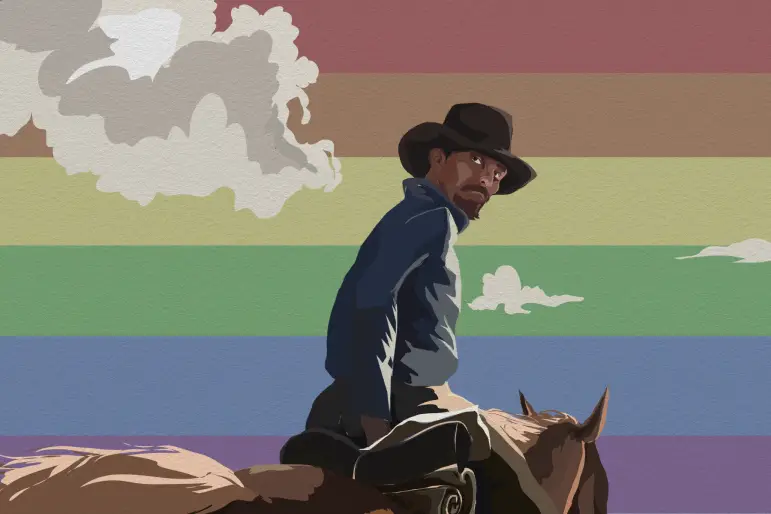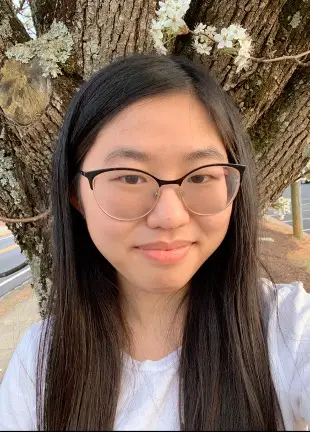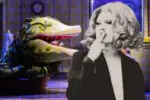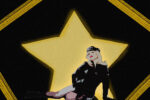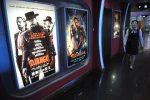Netflix’s latest project, “The Power of the Dog,” is a Western film adaptation that grapples with masculinity and queer identity. It’s already received critical acclaim, but it propelled an ongoing debate back into the public eye. The film features Benedict Cumberbatch, a cisgender, heterosexual man (as far as we know, anyway) as the gay lead.
People always go back and forth as to whether it’s acceptable for cisgender and heterosexual people to take on queer roles. Regardless of the criticism, Cumberbatch, who previously played gay scientist Alan Turing in “The Imitation Game,” defended his involvement in the movie, as did many others in the entertainment industry. But there are several arguments on both sides, and it seems unlikely that the industry will come to an easy conclusion any time soon.
The Talent Argument
Often, people attempt to justify casting cisgender and heterosexual actors for queer roles with the notion that it’s an actor’s job to portray different people. If it’s done respectfully, it shouldn’t matter whether or not they’re queer. An actor doesn’t need to have the same lived experiences or traits as the character they play, so why should they have the same sexuality? If the person hired gave the best audition, there shouldn’t be a problem. Limiting the types of roles available for an actor based on a non-visible characteristic may come off as unnecessary, especially when it can also unintentionally affect queer actors’ opportunities. Claiming that queer actors should only play queer roles could potentially exclude closeted or questioning queer folk. It’s strange to expect that directors ought to be privy to such information, or that anyone can evaluate how “queer” a person must be to play a certain part.
In general, it’s unfair to act as though the public deserves to hear information about the personal lives of actors who, at the end of the day, are just trying to do a good job. Using a similar train of thought, Cumberbatch defended his role, stating that he feels “very sensitive about representation, diversity, and inclusion.” Ultimately, the director “chose us as actors to play those roles. That’s her question to answer.”
However, drawing from personal experience can create more authentic performances. Russel T. Davies made waves with last year’s show “It’s A Sin.” He credited part of its success to the fact that he went out of his way to cast queer actors, which lent to the show’s raw energy. It was something “you can feel … rising off the screen,” according to Davies. The inverse is also true. Plenty of us remember the nightmare of James Corden’s portrayal of a flamboyant gay man in Netflix’s “The Prom.” Frankly, I’d pay good money to never see something like that again.
The Fairness Argument
While straight and cisgender actors receive the privilege of being selected to play both cis-heterosexual characters and queer characters, queer actors are given far less leeway. They are instead pigeonholed into playing certain stereotypes or glorified extras or both. On top of that, individuals reported biases both in the casting process and on set, leading to unfriendly work environments. As such, encouraging casting directors to accept queer people for queer parts would partially solve the discrimination inherent in hiring decisions.
Additionally, there is greater hesitance to hire queer actors for non-queer parts. The argument that actors should be allowed to go beyond their own identities is rarely, if ever, extended to queer people. Nathaniel Curtis, a queer actor known for his role on HBO Max’s “It’s A Sin,” noted that straight actors frequently receive accolades for their portrayal of queer characters: When “you have a gay actor play a straight role, and it’s like, ‘Who are they trying to kid?’”
It’s also important to note that different queer identities face this dilemma to a harsher extent. Transgender and genderqueer actors are far more restricted than their cisgender counterparts of any sexuality. In the past, gay actors played straight people. For example, Neil Patrick Harris is well-known for his nine-year stint as Barney Stinson on “How I Met Your Mother,” just as Jim Parsons portrayed Sheldon Cooper in “The Big Bang Theory.” Meanwhile, it’s rare to see transgender actors with the opportunity to play any fully actualized character, let alone a cisgender one. Yet Jared Leto and Ellie Fanning get lauded for daring to play trans characters. Thus, transgender and gender-nonconforming performers are largely left to the wayside.
The Historical Argument
To nobody’s surprise, the exclusion of queer actors isn’t a new phenomenon. As such, strong historical reasons for intentionally inclusive casting decisions go beyond the spirit of talent or fairness. Throughout the history of Hollywood, actors couldn’t be openly queer. It wasn’t until recently that identifying as LGBTQ+ became less stigmatized. Still, queerphobic beliefs persist in both the industry and among audiences.
During the (supposed) Golden Age of Hollywood, the Universal Film Company introduced the “moral clauses.” They stated that companies could cancel actors’ salaries “if they forfeit the respect of the public.” Some queer actors went as far as marrying the opposite sex to keep their sexuality hidden in a practice known as “lavender marriages.” For example, Rock Hudson decided to marry his secretary Phyllis Gates to prevent a journalist from outing him. Barbara Stanwyck and Robert Taylor, who were both rumored to be gay at the time, also married; they notably refused to kiss at the ceremony.
Other consequences of such legal contracts occurred. Being openly queer wasn’t an option for most people who wanted to keep their jobs. Tab Hunter, a gay man and former Hollywood heartthrob who remained closeted for most of his life, spoke about how his agent discouraged him from coming out, as it could bring on “devastating consequences.” Plenty of people in entertainment experienced the same thing. Being in the closet was simply the norm for anybody who wanted to be anybody. The same could be said for Hollywood’s fictional creations. The combined reluctance to hire queer actors for straight roles and an overall lack of representation, especially in roles that weren’t purely comedic or villainous, also meant that plenty of queer actors struggled to find work.
People thus argue that the historic exclusion of openly queer actors from any role is grounds to reserve queer roles for them. To continuously show favoritism for cis straight actors would perpetuate an exclusive environment, especially when off-screen representation can be just as important as on-screen representation. The entertainment industry clearly needs to make up for the sins of the past.
The Consensus (or Lack Thereof)
It would be nice to cast openly queer actors for queer roles, especially given their historic exclusion from big Hollywood productions. That being said, making this an overarching rule doesn’t feel necessary. If Benedict Cumberbatch truly is the best man for the job, then so be it.
But the reality of the situation is that he’s still taking a role from an actual queer actor who could lend some authenticity to the character. True, this isn’t a moral failing on Cumberbatch’s part, nor is it right for us to demand such personal details about anybody’s private life. Maybe he was the perfect guy for the part. But it’s unfortunate that despite such improvements for greater on-screen representation, diversity remains sparse behind the scenes. And no, that shouldn’t mean we must prohibit straight and/or cisgender actors from taking on queer roles.
What matters most is ensuring that marginalized people in entertainment from varying demographics are given the same opportunities that straight, cisgender and white people do. Right now, we completely and unequivocally need more diverse casting across the board.


